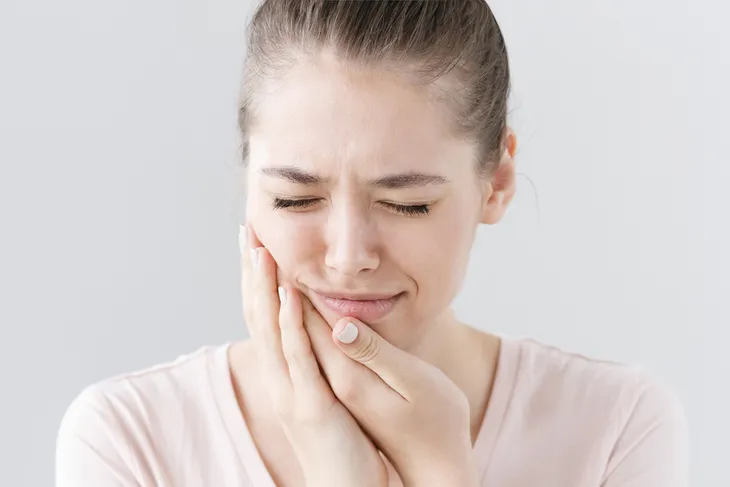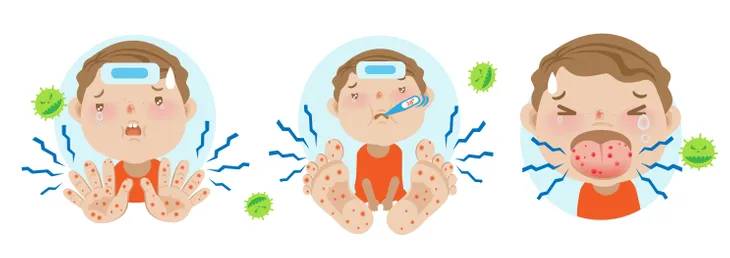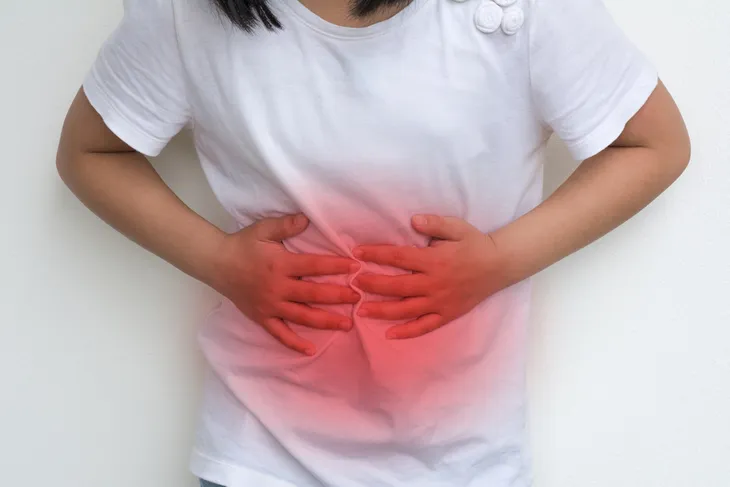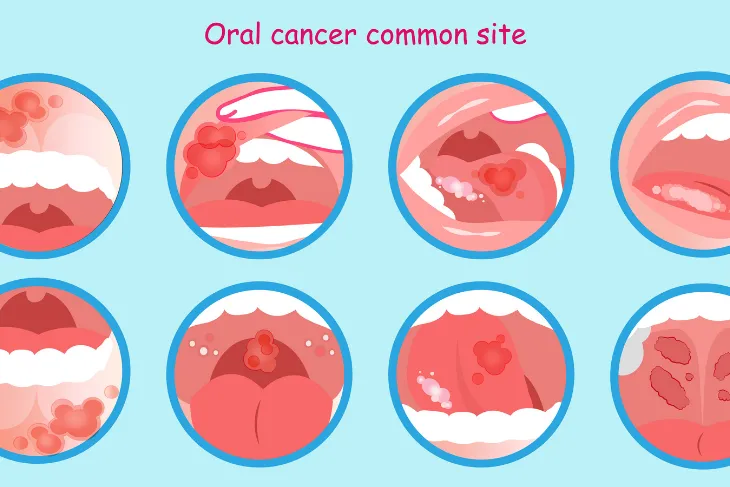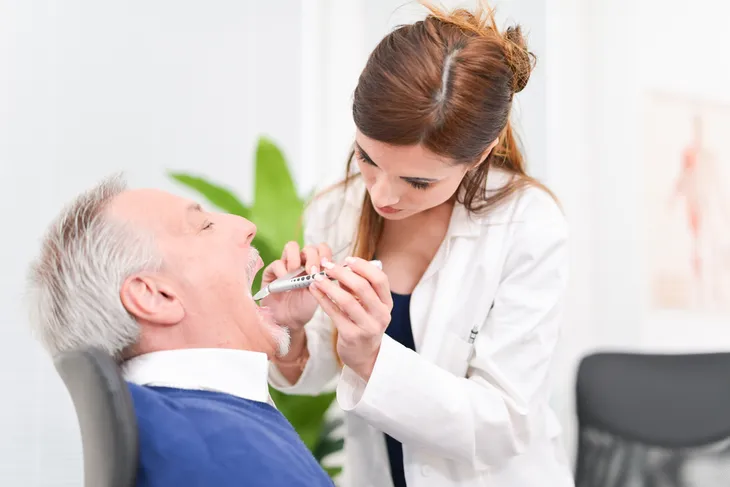Some are visible to the naked eye while others are too painful to ignore. Whatever your case may be, mouth sores are as problematic as they are common. The good news is, many mouth sores can be treated with a combination of over-the-counter medications and at-home remedies.
Most of us are going to experience some type of a mouth sore over the course of our lives. Understanding the different types of mouth sores can help you determine the right course of treatment. In this article, we’ll look at the most common types of mouth sores, how to approach treatment, and when you should seek professional guidance.
Canker Sores
Canker sores go away in about a week or two, but that’s little consolation for anyone who has one right now. These small lesions develop on the soft tissues of the inside of the mouth and the base of the gums and can make eating and talking a real pain.
Canker sores are usually round with a white or yellow center and a red border, though they are far from a one-size-fits-all. There are “minor canker sores”, much larger “major canker sores” and “herpetiform canker sores.” These are not contagious but may require a trip to the doctor if they persist for more than a week or so.
Cold Sores
Cold sores, sometimes called fever blisters, present as painful, red, fluid-filled blisters. They are usually located near the mouth and the lips.
If there’s more than one, then they’re usually clustered together. Over the course of a few days, the fluid-filled blister will burst, creating a scab that will usually clear up in about a week or so without leaving a scar behind.
Cold sores are caused by the herpes simplex virus type 1, though they can sometimes be caused by herpes simplex virus type 2. They are incredibly contagious on contact and are most often spread by kissing. They are also incurable.
Hand, Foot, and Mouth Disease
Hand, foot, and mouth disease is a viral infection that’s contagious and usually targets young children. It appears as a distinct rash on the hands and feet alongside sores in the mouth. The culprit is most often the coxsackievirus.
Along with the rashes and mouth sores, hand, foot, and mouth disease symptoms can include a fever, a sore throat, a loss of appetite, irritability in infants and toddlers and generally feeling unwell.
There are no known treatments for hand, foot, and mouth disease. However, it’s typically only a minor illness and should clear up in just a few days. It’s worth noting, if the mouth sores are preventing your child from drinking fluids then you should speak with your doctor.
Celiac Disease
Whether it be in the aisles of your local grocery store or at a dinner party you’ve attended, you may have already crossed paths with celiac disease in some capacity. Celiac disease is a negative immune system response to the gluten that is often found in everyday food products like pasta, bread, and beer.
Improper management of celiac disease can lead to small intestine damage, diarrhea, weight loss, stomach pain, joint pain, gas, skin rashes, and yes, frequent mouth sores. More specifically, celiac can lead to the frequent appearance of canker sores.
Mouth Cancer
Cancer of the mouth can affect any part of it, including the lips, gums, tongue, inner lining of the cheeks as well as both the roof and floor of the mouth. The symptoms include sores, a white or reddish patch on the inside of your mouth, pain, a noticeable growth or lump, ear pain, loose teeth, and difficulty swallowing.
Like most cancers, mouth cancer is created when the cells of the affected area mutate in their DNA. It isn’t always easy to draw a straight line between the appearance of cancer and its direct cause, but risk factors for the development of mouth cancer include tobacco use, heavy alcohol use, excessive sun exposure, HPV, and a weakened immune system.
There are no proven preventative measures either. The best way to protect yourself, other than avoiding the risk factors, is through regular screening at home as well as regular visits to your family doctor.
Treatment
It’s not uncommon for a mouth sore to heal in one or two weeks without any treatment at all. But home remedies, over-the-counter medications, and modifications to your diet can help mitigate the painful symptoms and help speed up the healing process.
Gargling with salt water, using mouthwash, and applying a combination of baking soda and water directly to the sore can help ease discomfort. It is also a good idea to avoid alcohol, tobacco products, highly acidic foods like citrus, and excessively salty foods.
If needed, you can always take oral pain relievers. If that doesn’t help you can speak to a doctor about prescription anti-inflammatories or pain medications and ointments.
How to Prevent Mouth Sores
The good news is there are steps you can take to help prevent mouth sores. Chewing carefully, practicing good dental hygiene, and avoiding hot foods and beverages is a great start.
You should also make sure that you’re drinking enough water, limiting your consumption of alcohol, and avoiding tobacco. You should also think about proactively applying lip balms to protect your lips from damage caused by prolonged exposure to SPFs.
When to See a Doctor
A visit to your family doctor or dentist can sometimes be a necessary next step. If you find that you’re experiencing mouth sores a lot, a dentist may be able to assess your situation to find out what may be causing the irritation.
Further, you should seek medical care if your sores are getting worse over time, if you notice signs of infection, if you see white patches on the sores or if you notice the development of sores after starting medication or any other medical treatment.
Conclusion
Mouth sores are a nuisance. Everyone experiences them in one way or another, though some cases can be significantly more serious than others.
You can prevent them by taking your dental hygiene seriously, and through the proactive use of lip balms, hydration, and healthy living.
Having said all of that, it’s critical that you know the signs and symptoms of the more serious variations. Spotting the early signs is essential for early detection and treatment.

